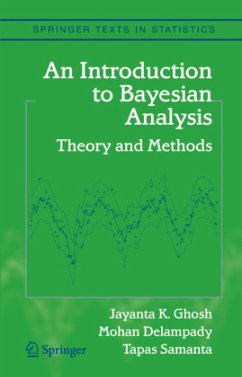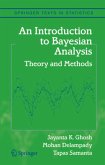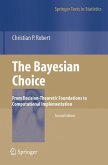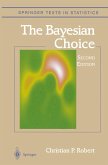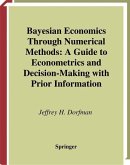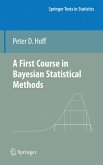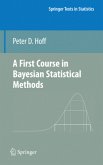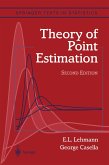Though there are many recent additions to graduate-level introductory books on Bayesian analysis, none has quite our blend of theory, methods, and ap plications. We believe a beginning graduate student taking a Bayesian course or just trying to find out what it means to be a Bayesian ought to have some familiarity with all three aspects. More specialization can come later. Each of us has taught a course like this at Indian Statistical Institute or Purdue. In fact, at least partly, the book grew out of those courses. We would also like to refer to the review (Ghosh and Samanta (2002b)) that first made us think of writing a book. The book contains somewhat more material than can be covered in a single semester. We have done this intentionally, so that an instructor has some choice as to what to cover as well as which of the three aspects to emphasize. Such a choice is essential for the instructor. The topics include several results or methods that have not appeared in a graduate text before. In fact, the book can be used also as a second course in Bayesian analysis if the instructor supplies more details. Chapter 1 provides a quick review of classical statistical inference. Some knowledge of this is assumed when we compare different paradigms. Following this, an introduction to Bayesian inference is given in Chapter 2 emphasizing the need for the Bayesian approach to statistics.
From the reviews:
"This text provides a unique blend of theory, methods and applications that is suitable for a one-semester course in Bayesian analysis." C.M. O'Brien for Short Book Reviews of the ISI, December 2006 "The material of the book covers more than a one semester course and provides enough results for a second course. ... the book is simultaneously useful for different readership groups. Instructors will get guidelines for preparing a course on Bayesian statistics ... . Students will enjoy the excellently clear ... style and the exercises at the end of each chapter. Practitioners will find plenty of classical and recent Bayesian methods. ... I highly recommend the book to all readers who are interested in Bayesian statistics."
(Friedrich Liese, Mathematical Reviews, Issue, 2007 g)
"This book, with its 10 chapters, represents a valuable introduction to Bayesian statistics and varies among theory, methods and applications. ... The book's material is invaluable, and is presented with clarity ... . Each chapter's topics are covered by various examples and many exercises. ... gives a constructive approach to the statistical analysis based on Bayes' formula. ... So, it is strongly recommended to libraries and all who are interested in statistics."
(Hassan S. Bakouch, Journal of Applied Statistics, Vol. 35 (3), 2008)
"Taken overall, the book should be recommended to a wide audience...as a source of interesting and mind-provoking information about Bayesian statistics. "
( ISCB News, 2008)
"Bayesian analysis have arrived. ... This text offers one approach based on the pedagogic decision to 'balance theory, methods, and applications.' ... The brief introduction to classical inference ... provides a nice basis for the objective Bayesian treatment offered by the authors throughout the book. ... this book appealing for classically trained statisticians. ... Overall, I congratulate the authors for a largely successful attempt to introduce true religion."
(C. Shane Reese, Journal of the American Statistical Association, Vol. 103 (482), June, 2008)
"The book under review aims to contribute to existing graduate-level introductory texts on Bayesian analysis by providing an impressive blend of theory, methods, and applications. It consists of 10 chapters and 5 appendices."
(Joseph Melamed, Zentralblatt MATH, Vol. 1135 (13), 2008)
"This book is an introduction to the theory and methods underlying Bayesian statistics written by three absolute experts on the field. It is primarily intended for graduate students taking a first course in Bayesian analysis or instructors preparing an introductory one-semester course on Bayesian analysis. ... The book is written in a clear, relatively mathematical style ... ."
(Björn Bornkamp, Advances in Statistical Analysis, Issue 1, 2009)
"This book introduces the mathematical theory of Bayesian analysis along the statistical line of decision theory. ... This book is intended as a graduate-level analysis of mathematical problems in Bayesian statistics and can in parts be used as textbook on Bayesian theory. ... Overall, if I had to recommend a good book on new advancements of Bayesian statistics in the last decade from a theoretical decision point of view, I would recommend this book."
(Wolfgang Polasek, Statistical Papers, Vol. 50, 2009)
"This text provides a unique blend of theory, methods and applications that is suitable for a one-semester course in Bayesian analysis." C.M. O'Brien for Short Book Reviews of the ISI, December 2006 "The material of the book covers more than a one semester course and provides enough results for a second course. ... the book is simultaneously useful for different readership groups. Instructors will get guidelines for preparing a course on Bayesian statistics ... . Students will enjoy the excellently clear ... style and the exercises at the end of each chapter. Practitioners will find plenty of classical and recent Bayesian methods. ... I highly recommend the book to all readers who are interested in Bayesian statistics."
(Friedrich Liese, Mathematical Reviews, Issue, 2007 g)
"This book, with its 10 chapters, represents a valuable introduction to Bayesian statistics and varies among theory, methods and applications. ... The book's material is invaluable, and is presented with clarity ... . Each chapter's topics are covered by various examples and many exercises. ... gives a constructive approach to the statistical analysis based on Bayes' formula. ... So, it is strongly recommended to libraries and all who are interested in statistics."
(Hassan S. Bakouch, Journal of Applied Statistics, Vol. 35 (3), 2008)
"Taken overall, the book should be recommended to a wide audience...as a source of interesting and mind-provoking information about Bayesian statistics. "
( ISCB News, 2008)
"Bayesian analysis have arrived. ... This text offers one approach based on the pedagogic decision to 'balance theory, methods, and applications.' ... The brief introduction to classical inference ... provides a nice basis for the objective Bayesian treatment offered by the authors throughout the book. ... this book appealing for classically trained statisticians. ... Overall, I congratulate the authors for a largely successful attempt to introduce true religion."
(C. Shane Reese, Journal of the American Statistical Association, Vol. 103 (482), June, 2008)
"The book under review aims to contribute to existing graduate-level introductory texts on Bayesian analysis by providing an impressive blend of theory, methods, and applications. It consists of 10 chapters and 5 appendices."
(Joseph Melamed, Zentralblatt MATH, Vol. 1135 (13), 2008)
"This book is an introduction to the theory and methods underlying Bayesian statistics written by three absolute experts on the field. It is primarily intended for graduate students taking a first course in Bayesian analysis or instructors preparing an introductory one-semester course on Bayesian analysis. ... The book is written in a clear, relatively mathematical style ... ."
(Björn Bornkamp, Advances in Statistical Analysis, Issue 1, 2009)
"This book introduces the mathematical theory of Bayesian analysis along the statistical line of decision theory. ... This book is intended as a graduate-level analysis of mathematical problems in Bayesian statistics and can in parts be used as textbook on Bayesian theory. ... Overall, if I had to recommend a good book on new advancements of Bayesian statistics in the last decade from a theoretical decision point of view, I would recommend this book."
(Wolfgang Polasek, Statistical Papers, Vol. 50, 2009)

